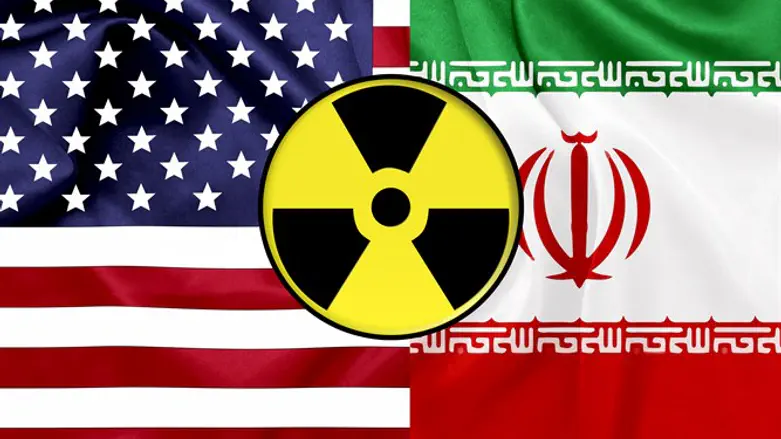
The escalation in Gaza in late May when nearly two-hundred rockets were launched indiscriminately at civilian populations in Israel over the course of about 24 hours was met with condemnations by the White House and an emergency meeting of the UN Security Council.
For nearly three months the Gaza border has been the site of riots coupled with attempts by Hamas to use civilian demonstrators as cover in order to cross the border and commit terrorist attacks, kidnap Israelis, lay roadside bombs and IEDs and engage in other forms of terror activities such as terror kites and balloons.
Prior to the first day-long eruption of rocket fire, the situation had been calming down. Hamas was reducing the number of Gazans they were bussing to their riots and reducing their level of violence.
Then on Tuesday night, Israel was hit by another barrage of rockets. Why did the situation explode without warning? Like Hezbollah, Hamas and the Palestinian Islamic Jihad, both receive funding from the Iranians, and the first outburst of rockets came soon after Russia accepted Israeli demands that Iran withdraw from Southern Syria, a situation Iran was unlikely to accept quietly. It is continuing to keep the issue hot.
Responding directly, or even through Iran’s proxies to Israel’s North could have brought about an open war and provoked a significant international backlash, drawing the Europeans to Israel’s side in condemnation of Iran and harming Iran’s ability to maintain the framework of the nuclear deal without the US.
Iran needed something more discreet, like a limited escalation in Gaza that would restore Iranian pride before being drawn down when necessary.
The rocket fire launched at mainland Israel and the reescalation of riots along the Gaza border should serve as a wake-up call to all those who are still in need of one. Iran is continuing to spread violence across the region and will persist in doing so until it is confronted more forcefully.
The condemnations have proven ineffective. Countries interested in Mideast stability should be issuing new sanctions in direct response to the assault on civilian populations.
From an American perspective, since withdrawing from the Iranian nuclear agreement, known as the Joint Comprehensive Plan of Action (JCPOA), the US has promised “the strongest sanctions in history,” including pre-deal sanctions and more, in order to force Iran back to the negotiating table. Recent events in Gaza provide an additional opportunity for sanctions already aligned with Trump’s stated goals.
Even from the perspective of those who are still party to the JCPOA, the agreement was supposed to address the nuclear issue without precluding the West from holding Iran accountable for nonnuclear misadventures through sanctions not waved in the accord.

According to Politico, in order to avoid antagonizing Iran, the Obama administration knowingly ignored Hezbollah’s smuggling significant amounts of narcotics into the United States. The actual record paints a different picture. To avoid antagonizing Iran and risking the future of the JCPOA, Western countries are ignoring Iranian meddling across the Mideast, including in places like Iraq and Yemen. According to Politico, in order to avoid antagonizing Iran, the Obama administration knowingly ignored Hezbollah’s smuggling significant amounts of narcotics into the United States.
The actual record paints a different picture. To avoid antagonizing Iran and risking the future of the JCPOA, Western countries are ignoring Iranian meddling across the Mideast, including in places like Iraq and Yemen. According to Politico, in order to avoid antagonizing Iran, the Obama administration knowingly ignored Hezbollah’s smuggling significant amounts of narcotics into the United States.
Civilian protests that have taken place in Iran since the American exit from the JCPOA demonstrate that sanctions are working but the job is not quite done. Rather than undermining the deal, further sanctions would actualize the JCPOA’s supposed reservation of the ability to confront nonnuclear issues and help motivate Iran to curtail its dangerous behavior.
In the meantime, by motivating the West to ignore Iran’s misbehavior, the JCPOA enables Iran to draw the Mideast into unnecessary conflicts, contrary to the theory on which it was based.
What good is an agreement that was supposed to avert a war to prevent Iran from building a nuclear bomb when it enables Iran to draw the region into other unnecessary wars? If the West is unable to confront Iran’s nonnuclear misbehavior without jeopardizing the JCPOA, then the JCPOA is a hypocrisy.
Baruch Stein is a writer living in Jerusalem. Previous columns of his have appeared in media outlets in both the US and Israel.